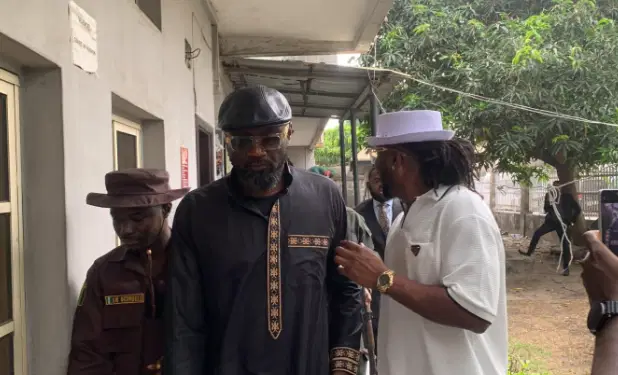President Muhammadu Buhari has again come down hard on governors over what he said was their unbridled ill-treatment of the administration of resources at the local government levels, causing what he termed stunted development experienced at the third tier of government and unfair labelling of his administration at the grassroots.
The President bared his mind yesterday after he delivered a speech at an event hosted for members of the Senior Executive Course 44 (2022) of the National Institute for Policy and Strategic Studies (NIPSS) at the Presidential Villa, Abuja.
Veering off his prepared address, the President cited a personal experience involving a governor he did not name, misappropriating funds meant for local government, thereby inhibiting development at the grassroots.
He said it beats anyone’s imagination how some governors would collect money on behalf of local councils in their states, only to remit just half of such allocation to the chairman, who would further deplete the remittance in further pilfering of public resources.
He, however, related the development to the question of lack of integrity in the character of many of those holding such offices, adding that such actions are rather despicable and speak of the height of corruption.
President Buhari’s comments followed remarks on the Course 44 presentation, with the theme: ‘Strengthening Local Governance in Nigeria: Challenges, Options and Opportunities’, by some members of the Federal Executive Council, who aired their personal views on enhancing the autonomy of local governments.
A baffled Buhari described as “terrible” the actions of some of the governors. He said: “I found it necessary to digress after reading my speech and this digression is a result of my personal experience.
“This is my personal experience. If the money from the Federation Account to the state is about N100 million, N50 million will be sent to the chairman, but he will sign that he received N100 million. The governor will pocket the balance and share it with whoever he wants to share it with.
“And then the council chairman must see to how he will pay salaries and say to hell with development. When he pays salaries, the balance he will put in his pocket.
“This is what’s happening. This is Nigeria. It’s a terrible thing; you cannot say the person who is doing this is not educated. He is a qualified lawyer, experienced and yet he participated in this type of corruption.
“So, it’s a matter of conscience, whichever level we found ourselves. As a leader, you sit here, with all the sacrifices the country is making by putting you through institutions and getting you ready to lead. The fundamental thing is personal integrity. May God help us.”
The President also pledged that his government would “painstakingly” consider the recommendations contained in the paper presented by the SEC 44 to implement them. “It is obvious that government cannot afford to pay lip service to the recommendations contained in this report. ‘I assure you that the report will be treated with the seriousness and urgency it deserves,’’ he said.
He expressed delight that the Institute has been exceptional in handling several assignments, and the current submission is a commendable improvement on the existing standards.
In his remarks, the Director-General of NIPSS, Prof Ayo Omotayo, said the Course participants undertook study tours of 14 states, six African countries and six countries outside Africa.
‘’This enabled them to have both local and international perspectives on local governance, how to overcome challenges in achieving it, identify the available opportunities to strengthen it and develop workable options to be considered by government in strengthening local governance,’’ he said.
On Wednesday, the Federal Government attributed the prevailing high level of poverty in the country to the attitude of some governors who focus more on building flyovers and airports rather than improving lives of citizens in rural areas.
Speaking after the Federal Executive Council (FEC), the Minister of State for Budget and National Planning, Clement Agba, disclosed that 72 per cent of poverty in Nigeria was located in rural areas, which he said had been abandoned by governors.






